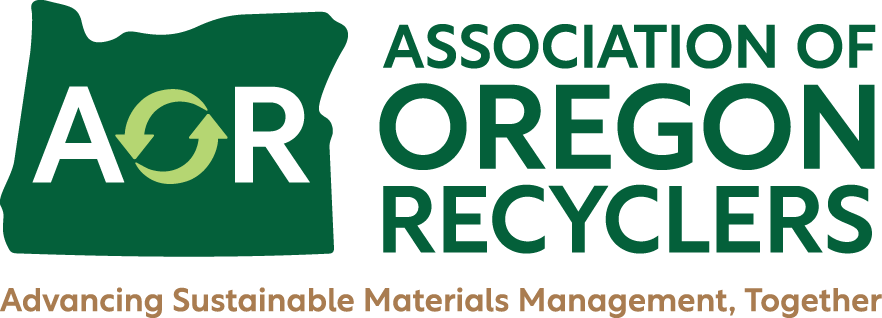Webinar: Solar Panel Stewardship: the Future is Now
Solar panels emerged as an energy source in the early 1990’s, and as the technology advanced and became more affordable, more U.S. households and businesses installed these devices. Fast forward to today – nearly thirty years later – and many of the first installed solar panels are in need of replacement. Solar modules contain hazardous materials, rare earth elements, and other materials that must be managed safely and responsibly, some of which have tangible economic value. What is the best way to manage spent solar panels, and how can we incorporate these products into the circular economy?
Washington State is leading the way in addressing the post-consumer management of spent solar panels. They recently passed a first-in-the-nation law (the Solar Incentives Job Bill (ESSB 5939)) requiring solar panel manufacturers to finance and manage the collection and processing of post-consumer photovoltaic modules. This extended producer responsibility law will reduce waste, increase recycling, save money for governments, and create jobs.
In this webinar, speakers from Washington State and the solar panel industry will discuss the environmental and economic problems with post-consumer solar panels, Washington’s law, and how others can take the lead in properly managing these products when consumers are done with them.
Speakers:
| Representative Norma Smith
Representative, District 10 Since 2008, Rep. Norma Smith has served the people of Washington state’s 10th Legislative District, which includes all of Island County and parts of Skagit and Snohomish County. She currently serves as ranking member on the House Technology and Economic Development Committee, and as assistant ranking member on the House Capital Budget Committee. During her time in office, Norma has been committed to finding positive solutions to the most pressing issues facing the 10th District and the state. She has built and been involved with multiple bipartisan coalitions addressing issues such as government accountability, environmental stewardship and regulatory reform. Norma believes state government must ensure the most important priorities, services and projects receive the state’s first dollars. She also believes fostering the economic climate necessary for Washington families to prosper is essential not only for their well-being, but for the Legislature’s ability to fund a quality education for our children, programs for our must vulnerable, critical infrastructure projects and public safety efforts. |
|
Sego Jackson Strategic Advisor, Waste Prevention and Product Stewardship Sego Jackson is City of Seattle's Strategic Advisor for Waste Prevention and Product Stewardship and works in the areas of waste prevention, recycling, organics management, and product stewardship/producer responsibility. In this position, he monitors and advises on related legislation at the local, state and federal level. Sego also serves as Policy committee Chair for the Northwest Product Stewardship Council. Sego is most noted for his work on product stewardship/producer responsibility systems and legislation and played a significant role in the drafting and passage of Washington State's landmark producer responsibility bill for electronics (2006), the nation's first full producer responsibility law for electronics. This law has now resulted in the manufacturers of electronics providing over 280 locations across Washington where citizens can responsibly recycle their televisions and computers at no cost. He is a founding steering committee member of the Northwest Product Stewardship Council and is the Chair of its Policy Subcommittee. His activities include promoting product stewardship for a wide range of toxic products; working to decrease the impacts of packaging and increase its recycling; and closing the foodcycling loop through effective composting of food waste and other organics and returning that compost to local farms and gardens. |
|
Jan Clyncke Managing Director Jan Clyncke joined PV CYCLE as Managing Director as of 1 April 2008. He graduated with a Bachelor of Law from the University of Ghent in 1991. He continued his studies at Ehsal and Vlerick Management School. In his early career he worked as a manager of Production & Logistics in the meat industry before moving into the waste management sector. He was employed by the Dutch AVR-Van Gansewinkel Group where he worked as project manager, legal environment and government affairs manager Benelux. In the last three years before joining PV CYCLE, he was in this Dutch company responsible for Health, Safety and Environment. He has experience in setting up of voluntary and mandatory take-back schemes in Belgium and the Netherlands in household and industrial packaging waste, tire waste, vegetable oil & fat waste, waste oil (lubricants), waste on electrical and electronic equipment, empty paint tin waste, flat glass waste, photochemical waste, etc. |
|
Rick Matheson |
|
Scott Cassel (Moderator) Scott Cassel, CEO and founder of the Product Stewardship Institute (PSI), has over 30 years of experience tackling waste management issues in the public, private, and nonprofit sectors. Prior to founding PSI in 2000, he served seven years as the Director of Waste Policy and Planning for the Massachusetts Executive Office of Environmental Affairs, where he developed and implemented solid and hazardous waste management policies and programs. He is also the author of a chapter in the 2008 Handbook on Household Hazardous Waste that focuses on product stewardship. Scott is a nationally renowned leader in the product stewardship movement and has experience across multiple product categories, including packaging, electronics, pharmaceuticals, and paint. As PSI’s CEO, he developed the widely acclaimed facilitation process that the organization uses for stakeholder engagement and consensus-building—a process that resulted in the nation’s first industry-run, government-mandated paint stewardship program. Scott holds a master’s degree in Environmental Policy and Dispute Resolution from the Massachusetts Institute of Technology, and a bachelor’s degree in Geology and Environmental Studies from the University of Pennsylvania. |


